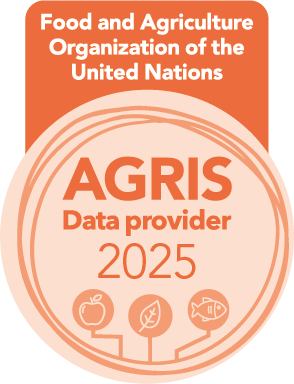Assessment of biochemical profile among patients of gestational diabetes mellitus
Biochemical profile of GDM patients
DOI:
https://doi.org/10.54393/df.v1i01.4Keywords:
Gestational diabetes mellitus, Biochemical profile, HbA1cAbstract
Gestational diabetes mellitus is common but a major health problem in pregnant women. The rate of gestational diabetes mellitus has increased globally from 3% to 14% within last 10 years. Objective: To assess the biochemical profile of women with gestational diabetes mellitus visiting public hospitals, Lahore city. Methods: A cross-sectional study was carried out at gynae department of Sir Ganga Ram Hospital, Lahore and Services Institute of Medical Sciences, Lahore within 4 months using the convenient sampling technique. The data of 100 patients were collected through pre-tested questionnaire. Data were analyzed statistically using SPSS version 21.0. Frequencies were calculated, Pearson’s chi-square test was applied. Results: According to the results, 81% patients were not having insulin therapy during pregnancy and only 19% were having insulin. 73% patients had OGTT values above 200 mg/dl during pregnancy while 27% had values above 140 mg/dl. An insignificant association was found between HbA1c test results and cereal food (paratha) consumption (p< .72). Conclusions: Study concluded that more than half of female had high OGTT rate. Improper medication, irregular treatment and lack of proper medication to control diabetes during pregnancy were a major cause of high clinical test values of diabetes in pregnant women. There was no significant association between HbA1c test results and cereal food consumption
References
Buckley BS, Harreiter J, Damm P, Corcoy R, Chico A, Simmons D, Vellinga A, Dunne F (2012). Gestational diabetes mellitus in Europe: prevalence, current screening practice and barriers to screening. A review. Diab. Med, 29 (7), 844-854. doi: 10.1111/j.1464-5491.2011.03541.x
Seshiah V, Balaji V, Balaji MS, Paneerselvam A, Arthi T, Thamizharasi M, Datta M (2008). Prevalence of gestational diabetes mellitus in South India (Tamil Nadu): a community based study. J. Assoc. Phy. In., 56, 329-33. https://pubmed.ncbi.nlm.nih.gov/18700640/
Wahi P, Dogra V, Jandial K, Bhagat R, Gupta R, Gupta S, Wakhloo A, Singh J (2011). Prevalence of gestational diabetes mellitus (GDM) and its outcomes in Jammu region. J. Assoc. Phy. In., 59(4), 227-30. https://pubmed.ncbi.nlm.nih.gov/21755759/
Alfadhli EM (2015). Gestational diabetes mellitus. Saudi med. J., 36(4), 399. doi: 10.15537/smj.2015.4.10307
Bentley-Lewis R (2009). Gestational diabetes mellitus: an opportunity of a lifetime. The Lancet, 373 (9677), 1738-1740. doi:https://doi.org/10.1016/S0140-6736(09)60958-2
Vidaeff AC, Yeomans ER, Ramin SM (2003). Gestational Diabetes:: A Field of Controversy. Obstet. Gyne. Surv. 58(11), 759-769. doi: 10.1097/01.OGX.0000093782.25261.AC
Coustan DR (2010). Finding and treating gestational diabetes mellitus—does it help?. Nat. Rev. Endo. 6(10), 540-542. https://www.nature.com/articles/nrendo.2010.148
Turok DK, Ratcliffe SD, Baxley EG (2003). Management of gestational diabetes mellitus. Ame. Fam. Phy. 68(9), 1767-1772. https://pubmed.ncbi.nlm.nih.gov/14620596/
Ben‐ Haroush A, Yogev Y, Hod M (2004). Epidemiology of gestational diabetes mellitus and its association with Type 2 diabetes. Diab. Med. 21(2), 103-113. doi: 10.1046/j.1464-5491.2003.00985.x
Lawrence JM, Contreras R, Chen W, Sacks DA (2008). Trends in the prevalence of preexisting diabetes and gestational diabetes mellitus among a racially/ethnically diverse population of pregnant women, 1999–2005. Diabetes care, 31(5), 899-904. doi: 10.2337/dc07-2345
Tobias DK, Zhang C, Van Dam RM, Bowers K, Hu FB (2011). Physical activity before and during pregnancy and risk of gestational diabetes mellitus: a meta-analysis. Diabetes care, 34(1), 223-229. DOI: 10.2337/dc10-1368
Rajput R, Yadav Y, Nanda S, Rajput M (2013). Prevalence of gestational diabetes mellitus & associated risk factors at a tertiary care hospital in Haryana. Ind. J. Med. Res., 137(4), 728. https://www.ijmr.org.in/article.asp?issn=0971-5916;year=2013;volume=137;issue=4;spage=728;epage=733;aulast=Rajput
Gilmartin AB, Ural SH, Repke JT (2008). Gestational diabetes mellitus. Rev. Obs. Gyne. 1(3), 129-134. https://pubmed.ncbi.nlm.nih.gov/19015764/
Chu SY, Callaghan WM, Kim SY, Schmid CH, Lau J, England LJ, Dietz PM (2007). Maternal obesity and risk of gestational diabetes mellitus. Diabetes care, 30(8), 2070-2076. doi: 10.2337/dc06-2559a
Shaat N, Groop L (2007). Genetics of gestational diabetes mellitus. Curr. Med. Chem. 14(5), 569-583. doi: 10.2174/092986707780059643
Moses RG, Barker M, Winter M, Petocz P, Brand-Miller JC (2009). Can a low–glycemic index diet reduce the need for insulin in gestational diabetes mellitus?: A randomized trial. Diabetes care, 32(6), 996-1000. doi: 10.2337/dc09-0007
Horvath K, Koch K, Jeitler K, Matyas E, Bender R, Bastian H, Lange S, Siebenhofer A (2010). Effects of treatment in women with gestational diabetes mellitus: systematic review and meta-analysis. Bmj, 340: c1395. doi: https://doi.org/10.1136/bmj.c1395
Donovan L, Hartling L, Muise M, Guthrie A, Vandermeer B, Dryden DM (2013). Screening tests for gestational diabetes: a systematic review for the US Preventive Services Task Force. Ann. Int. Med. 159(2), 115-122. https://www.ncbi.nlm.nih.gov/books/NBK138424/
Downloads
Published
How to Cite
Issue
Section
License
Copyright (c) 2020 DIET FACTOR (Journal of Nutritional & Food Sciences)

This work is licensed under a Creative Commons Attribution 4.0 International License.
This is an open-access journal and all the published articles / items are distributed under the terms of the Creative Commons Attribution License, which permits unrestricted use, distribution, and reproduction in any medium, provided the original author and source are credited. For comments












